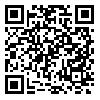Volume 3, Issue 5 (2015)
CFL 2015, 3(5): 185-208 |
Back to browse issues page
Download citation:
BibTeX | RIS | EndNote | Medlars | ProCite | Reference Manager | RefWorks
Send citation to:



BibTeX | RIS | EndNote | Medlars | ProCite | Reference Manager | RefWorks
Send citation to:
Mahdavi B, khalilollahi S, shoja Taghiabad S. Using Slangs, One of GhaemMaghamFarahani’s Stylistic Features in His Manuscripts. CFL 2015; 3 (5) :185-208
URL: http://cfl.modares.ac.ir/article-11-6505-en.html
URL: http://cfl.modares.ac.ir/article-11-6505-en.html
Abstract: (9610 Views)
Mirza AbolghasemGhaemMaghamFarahani is considered as the last great classical writer in the old method of Persian prose. The main task done by this tasteful minister was rescuing the prose from the maze of prevalent phraseology in the Safavi and Timurid eras. He planted the seedlings of the initial deviation from the conventional way of writing an artifact and grandiose, and of low content prose at those days. His presence may be a turning point in the history of Persian prose as his absence may lead to create no change in the authorship in the Constitution. In fact, he declined the poetic repetitive affidavits, tough terms, complex themes, metaphors and implicit similes sometimes used aberrantly. Using slangs, slogans and public proverbs considered as features resulting in the author detraction and degradation as well as approaching the prose to the natural, exact and simple writing. Flavoring intimacy to the literary and secretary writings, he helped to emerge simple writings like those works written by Naserodin Shah and Dehkhoda. Using proverbs, expressions and allegories gives dynamic features to GhaemMaghan’s writings, in general, and his manuscripts in particular. Relying on his own taste and grace, he used prevalent expressions and way of writing in a rhythmic and literary form to state his age issues as his fugleman, the Golestan’sowner. This paper aims at considering slangs in GhaemMagham’s manuscripts from a linguistic perspective with emphasize on using slangs as one of the features and methods in simple writings. It explores them in different aspects: simple substances, interpretations, allegorical compounds, proverbs and poems. It is worthy to mention that these matters are general subjects covering the other minor issues such as oath, addressing, devotion, desire, pleading and so on. Finally, statistics were presented in table form this category quantitatively
Received: 2015/06/16 | Accepted: 2015/06/16 | Published: 2015/08/23
| Rights and permissions | |
 |
This work is licensed under a Creative Commons Attribution-NonCommercial 4.0 International License. |







